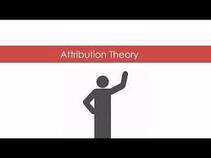|
As explained by a new study on the subject, the idea of “attributional style” refers to “how people habitually explain the causes of different events in their lives” (all quotes are from the original article) and is thought to play an important role in their mental health and well-being.
In particular, a pessimistic attribution style explaining negative events by internal and uncontrollable factors is often considered a risk factor for depression. However, much less is known about the potential influence of a student’s attributional style on their academic performance. To answer this question, a team of researchers recently conducted two studies on Russian students. In the first one, over 200 high school students were given a series of questionnaires assessing their attributional style and psychological well-being, which were then compared with their grades in mathematics and literature. Interestingly, although the optimistic attributions of both positive and negative events were found to predict well-being, the former (attributing positive events to internal, stable, and global factors) was the only one significantly associated with academic achievement. These findings were corroborated by the second study, conducted on university students, which used a longitudinal study to confirm that optimistic attributions not only correlate with, but actually boost performance over time. This could have important implications when it comes to intervention programs, which often focus on combatting pessimistic attributions of negative events, but more rarely promote optimistic attributions of positive events. Reference: Gordeeva, Sheldon and Sychev (2019), “Linking academic performance to optimistic attributional style: attributions following positive events matter most”, European Journal of Psychology of Education.
0 Comments
Your comment will be posted after it is approved.
Leave a Reply. |
|
Proudly powered by Weebly

